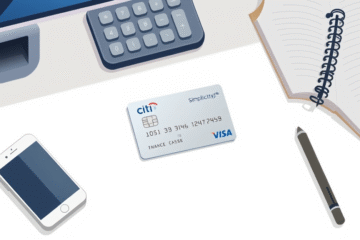Can I Have More Than One Credit Card?
Credit Card management is a critical aspect of personal finance that can significantly impact your financial health.
In this article, we will explore the benefits of having multiple credit cards, including how they can improve your credit utilization ratio and bolster your creditworthiness.
We will also discuss the impact of multiple credit cards on your credit score and the essential practices for responsible management.
Additionally, we will address the potential risks associated with owning more than one credit card, ensuring you stay informed and empowered in your financial decisions.
Exploring Multiple Credit Cards
Owning more than one credit card has become a popular financial strategy, offering individuals greater credit management options, enhanced flexibility, and opportunities for strategic planning.
This approach allows consumers to optimize their spending across different expenses while capitalizing on various card-specific benefits.
Many people are attracted to this practice due to its diverse advantages, including better rewards, credit-building potential, and serving as an emergency back-up.
Leveraging these advantages requires a thoughtful balance, ensuring each card serves a distinct purpose and contributes to a well-rounded financial plan.
NerdWallet’s Guide suggests that starting with two credit cards can provide enough diversity to experience these benefits without overwhelming newcomers.
Understanding the terms and conditions of each card, consumers can take full advantage of their rewards and manage their accounts responsibly, contributing positively to their credit score and financial health.
In this way, holding multiple credit cards becomes a beacon of financial acumen.
Key Advantages of Owning Several Cards
Owning several credit cards presents numerous benefits that not only enhance financial management but also offer substantial rewards.
By strategically selecting cards that offer various reward categories, you can maximize your rewards on every purchase.
For instance, using a card with cashback on groceries and another with rewards for travel expenses ensures that you capitalize on each spending category.
Moreover, having multiple cards increases your overall credit limit, which can positively influence your credit score through a lower utilization ratio.
This advantage ultimately strengthens your creditworthiness by showcasing responsible management of available credit, making you more attractive to lenders.
Additionally, the financial flexibility gained from multiple cards cannot be overstated.
Having diverse payment options provides a safety net when one card is declined or compromised.
Furthermore, many cards come with unique benefits such as complimentary travel insurance, purchase protections, and emergency assistance, making them valuable assets in unforeseen circumstances.
According to a Citi study on credit card benefits, managing more than one card can support your financial goals by offering tailored financial solutions for budgeting and spending, ultimately fostering a more secure financial future.
- Rewards maximization across spending categories.
- Increased overall credit limit and lower utilization ratio.
- Significant financial flexibility with multiple payment options.
- Access to diverse card-specific benefits such as travel insurance.
- Enhanced credit score with responsible card management.
Responsible Card Management Tactics
Maintaining multiple credit cards demands discipline and strategic management to avoid debt pitfalls.
Without a vigilant eye on payment schedules and spending patterns, one may easily slip into financial burdens.
Therefore, focusing on timely payments, controlled spending, and diligent statement monitoring is imperative.
Utilize digital tools to enhance your management system effectively.
Setting up automatic payments ensures you never miss a due date, contributing to a strong credit score.
A consistent review of your credit card statements helps in spotting errors early and monitoring unauthorized transactions.
Additionally, by keeping your credit utilization low, you’re not just protecting your credit score but also positioning yourself as a responsible cardholder.
Below is a valuable checklist to maintain and enhance your credit health:
- Track each due date with a digital reminder
- Set up automatic payments to cover the full balance
- Regularly review your statements for discrepancies
- Manage expenses to stay within budget
- Regularly check your credit score via services like Experian Credit Management
.
Applying these practices will not only guard your current financial status but also nurture a healthy credit future.
Recognizing Potential Drawbacks
Managing multiple credit cards, while offering benefits, also poses certain risks that one should be mindful of.
The potential for mounting debt is a significant concern, as more cards mean more avenues for spending which can quickly spiral out of control if not monitored closely.
Additionally, there’s the management complexity involved in keeping track of various due dates, balances, and terms, adding to financial stress if organization is lacking.
According to Equifax on managing credit cards, a major impact is seen on one’s credit score if the utilization rate increases or if payments are missed.
Financial institutions often monitor these aspects closely, affecting overall creditworthiness.
Perhaps most critically, a poorly managed array of credit cards could lead to a severe negative impact on your credit score, affecting your ability to secure future loans or favorable credit terms.
Credit-Score Impact Explained
Having multiple credit cards can significantly influence your credit score by affecting key components, such as credit utilization and average account age.
One of the pivotal elements is your credit utilization ratio, which reflects the amount of credit you’re using relative to your available credit limit.
Lowering this ratio usually improves your score by portraying responsible credit management.
Adding new cards can also lead to hard inquiries, which may temporarily decrease your score as myFICO highlights.
Meanwhile, each new card affects the average age of your credit accounts.
While opening new cards can reduce this average, maintaining older accounts open balances it out.
| Credit utilization | Lower utilization typically raises scores |
| Hard inquiries | Tend to slightly reduce scores temporarily |
| Average account age | Younger average can lower scores |
By understanding these dynamics, you can better manage your multiple credit cards to optimize your credit profile.
In conclusion, having multiple credit cards can be beneficial if managed responsibly.
Understanding the advantages and risks involved allows you to leverage credit effectively while maintaining financial stability.



0 Comments